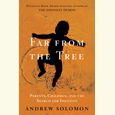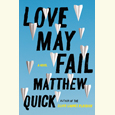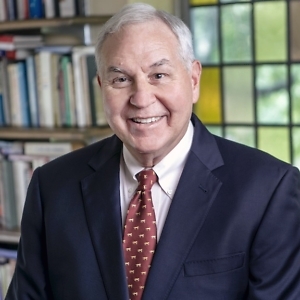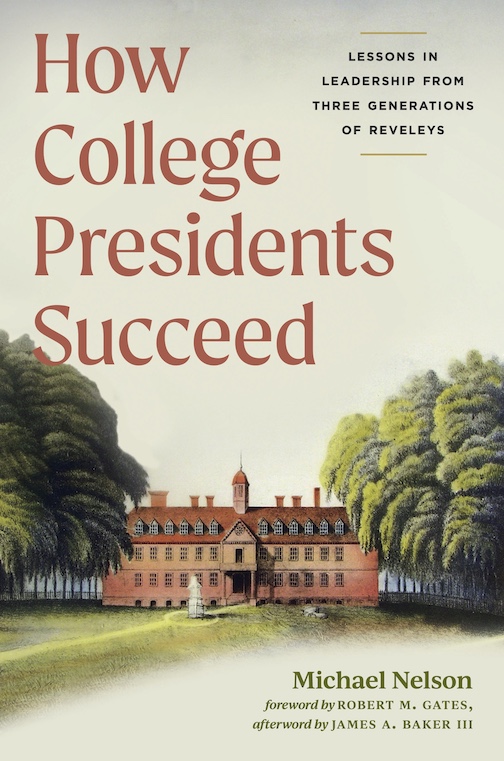The City of Lights—and Annoyances
For Rosecrans Baldwin, living in Paris wasn’t exactly everything he’d dreamed it would be
Rosecrans Baldwin was a budding writer in New York when, in 2007, he moved with his wife to Paris for a job in advertising. Like many Americans, Baldwin had a romantic vision of what his Paris life would be like; what it was actually like, from the bad coffee to the bad fashion to the bad manners—not to mention countless absurdly beautiful, and beautifully absurd, moments in between—forms the basis of his second book, Paris, I Love You But You’re Bringing Me Down.
Baldwin recently answered questions Chapter 16 via email prior to his appearance at the Southern Festival of Books, held in Nashville October 12-14.
Chapter 16: In your book you mention living in New York City and growing up in Connecticut, but you also have a Nashville connection. Can you tell me about that?
Rosecrans Baldwin: I was born in Chicago, where my parents are from. But my dad got a furniture job in Nashville, and we moved when I was four or five. My sister was born in Nashville. I have great memories of going for walks around Radnor Lake and looking for turtles, watching hot-air balloons pass over town during the fall.
Chapter 16: By the time you decided to move to Paris, you were already established in your career as an editor and freelance writer. What drove you to drop most of it and move to France and work in advertising?
Baldwin: My wife and I had wanted to move abroad pretty much since we met, back in 2000. Seven years later, an opportunity to go work for a French advertising agency fell in my lap. The work stuff I was doing in New York didn’t really matter to me—my main focus was writing novels, getting up early and doing whatever paid the bills to support that.
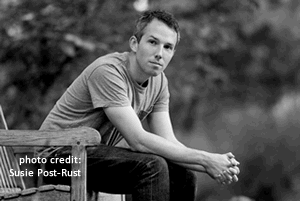 Chapter 16: Were you looking for inspiration? And did you find it?
Chapter 16: Were you looking for inspiration? And did you find it?
Baldwin: I’d written two [novels] by the time we moved, both were rejected, and I’d started my third one right before we left. I wasn’t looking for inspiration—but I was glad to leave New York. Being rejected is awful; being rejected in the capital of publishing adds a lot of echo to the pain. You’re living in the heart of the volcano, everyone you meet is getting a book published, lunching with their editors … It can be a drag when someone else has your same dream and sees it fulfilled right under your nose. I wasn’t looking for inspiration so much as escape.
Chapter 16: The book is of course about you and your time in Paris, but it’s also a carefully observed study of the modern Parisian character. Talk a bit about what you found.
Baldwin: Well, lots of things. Lots of things simply don’t make it across the Atlantic. About the excellence of frozen food in France, and the fact that most coffee that’s poured in cafes is awful. Or accurate accounts about male-female relations. I mean, when DSK or other French men are being pinned under the spotlight for their pro-grope attitude toward women, it’s easier to appreciate the nuances when you’ve seen contemporary office culture in France first-hand (which is pretty much an old boy’s club with female life guards).
Chapter 16: A lot of the book is centered on daily life at the advertising office where you worked. How did that office differ from a typical American office?
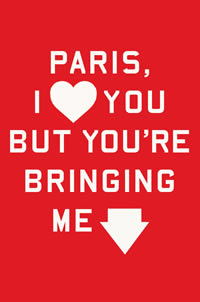 Baldwin: Well, the glib answer would be, read the book! But sure, it differed in a lot of ways. Respect for the lunch hour. Respect for humor, flirting, adults capable of being adults. There’s the impossibility of firing people—it’s very difficult to get fired in France. And there’s a strong emphasis on family. Not your family at home—my coworkers worked long hours, and would frequently miss dinner with their children—but the sense that your coworkers are more than employees, more than friends, that you’re all engaged in something demanding stronger bonds. People really cared about one another and looked after each other.
Baldwin: Well, the glib answer would be, read the book! But sure, it differed in a lot of ways. Respect for the lunch hour. Respect for humor, flirting, adults capable of being adults. There’s the impossibility of firing people—it’s very difficult to get fired in France. And there’s a strong emphasis on family. Not your family at home—my coworkers worked long hours, and would frequently miss dinner with their children—but the sense that your coworkers are more than employees, more than friends, that you’re all engaged in something demanding stronger bonds. People really cared about one another and looked after each other.
Chapter 16: What do you make of the relationship between French and Americans—not in a geopolitical or diplomatic sense, but in the everyday, human-to-human sense? What do they think of us, and what do they think of the way we think of them?
Baldwin: I think we both matter to the other significantly, on a variety of fronts. Allies, enemies, butts of jokes. We can be the funhouse mirror images of one another—the ways we wish we were and ways we’re glad we are not. I mean, France and the United States practically invented representative democracy together. We’ve got a long history. But the mood depends on politics and current events. These days, it’s very high. In January, I spent two weeks traveling the country, visiting five places in America called Paris to ask Americans how they feel about the French, and the great majority had favorable feelings, from cowboys in Idaho to plant workers in Maine.
Chapter 16: Finally, the question that several people ask you in the course of the book, and is still a bit of a mystery: Why did you come back—and would you ever return?
Baldwin: I came back because my wife and I were sick of living in a big city. My first novel was being published, and we wanted to live somewhere that had the cultural benefits of a university town, but a lower cost of living. So we moved to North Carolina, outside Chapel Hill, where my wife is from. But sure, of course, I’d return to Paris in a heartbeat. Assuming this time I didn’t have to spend all my time in an office.
Rosecrans Baldwin will discuss Paris, I Love You But You’re Bringing Me Down at the twenty-fourth annual Southern Festival of Books, held October 12-14 at Legislative Plaza in Nashville. All events are free and open to the public.

